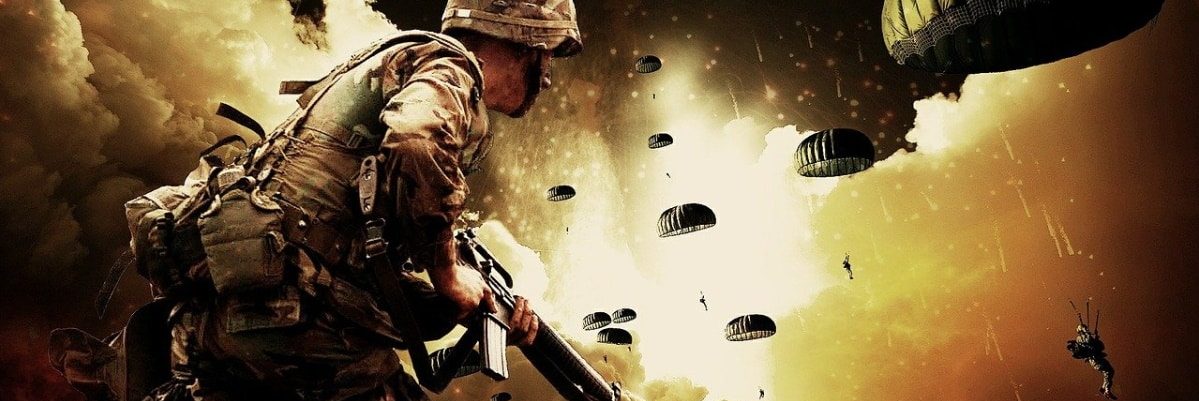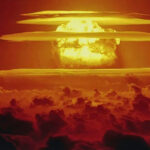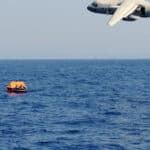by Fabio Bozzo
Escaping the war
Since 1991, with the collapse of the Soviet Union, the West has progressively convinced itself that classical warfare, made up of large uniformed units fighting against their adversaries, was a thing of the past. After all, even the Cold War, because of the nuclear balance, had accustomed public opinion to a myriad of "limited" conflicts around the world, often devastating, but that the two blocs constantly avoided expanding to involve their respective non-negotiable interests. However, despite the nuclear balance and the various war commitments in the Third World or in developing countries, the superpowers of the time continued to face each other in Europe at the head of two formidable conventional military deployments. If it is true that the Cold War never became "hot" thanks to the mutual assured atomic destruction, it is equally true that all the war plans of both sides mainly foresaw a gigantic conventional conflict, to be fought with immense armies comparable to those of the two world conflicts.
The end of the NATO-Warsaw Pact confrontation initiated in the West (especially in Europe) a period of naivety rarely equaled in history. The countries of the old communist bloc were economically broken and on their way to democracy and interconnection with free economies. Some of them even immediately began the path that would lead to a huge enlargement of NATO and the European Union. Therefore, it was no longer necessary to maintain expensive armed forces based also on numbers: without serious external threats and with the American umbrella always present, the long wave of the economic boom of the 80s had to be exploited to the full, making military spending a useless hindrance.
"Peace" or "international police" missions
This mixture of substantial well-being and security convinced the West, at least until September 11, 2001, that war was something outdated, something that now occurred only in backward places or places with a particularly tangled history. The various African conflicts, the never-quenched terrorism within the Islamic world and exported from it, even the wars in former Yugoslavia... for public opinion (justified) and for too many leaders (not justified) all this was something distant and exotic. Such conflicts could be faced either with the diplomatic and economic weight of the West or, in extremis, by sending "peace" expeditions limited in time and number, but equipped with enormous firepower and high technology. For this kind of operations small highly professional armies were sufficient. At the same time, the western intervention against Serbia in favor of Albanian Kosovars (a real legal Pandora's box opened by the Clinton presidency) has been the only conflict in history won only by air force.
Not even 9/11 has changed this view too much. With the exception of the United States, which for obvious geopolitical reasons must maintain a large and not only professional army, the West has considered the operations of the War on Terrorism as a sort of huge police intervention, almost a re-edition of the colonial campaigns aimed at re-establishing order in places worthy of the adventures of Salgari or Corto Maltese.
The raw Russian realism
Meanwhile, Russia has not been caught up in this collective drunkenness of high hopes. Despite the ups and downs of economic reconstruction in the aftermath of the communist disaster, Russian military doctrine has never deviated excessively from Soviet doctrine, which in turn was essentially tsarist. Of course, the Russians have also implemented fierce cuts in military budgets and personnel, while trying to improve the quality of the forces remaining in service. But this has not affected the fundamental thinking of their army, namely that wars are won through concentration of mass and firepower.
"Aided" also by a technology traditionally less sophisticated than that of the NATO countries, the Russians have continued to manufacture and keep in service a huge number of means that are slightly more backward than those of the West, but which can amply compensate for their relative backwardness with the quantity and willingness to take casualties from Russian society. And so, while for thirty years the West has been racking its brains to analyze such phenomena as "asymmetric warfare," "low-intensity warfare," "humanitarian intervention," or "peacekeeping missions," the Russians have continued to prepare for the normal, mundane, and fundamental war.
War returns to European history
The result is there for all to see in Ukraine. Moscow is conducting an armed invasion of a country larger than France with some 200,000 soldiers and hundreds of planes, artillieries and tanks. An operation not too different from those conducted by the great mechanized armies of World War II. The Ukrainian troops, inferior in all, in the face of this classic war have been taken by surprise, despite a resistance that will predictably stiffen as the front advances westward.
What about NATO? Despite possessing a military and economic power incomparably superior to the Russian one, the countries of the Atlantic Alliance have limited themselves to verbal condemnations and to prepare economic sanctions. The latter will hurt Russia a lot and it is not to be excluded a priori that they could cause the fall of Putin (from the Tsars to the Soviet Secretaries General, he would certainly not be the first Kremlin lord to be "sent in retirement").
In the meantime, sanctions cannot stop military operations in the field, with which Moscow clearly intends to confront the world with a fait accompli. The only thing that can counter a war devoid of postmodern adjectives is the dispatch of an army capable of repelling or, at least, blocking the adversary armed force by putting "boots on the ground". Too bad this is also the only option that both President Biden and NATO Secretary General Stoltenberg have ruled out a priori.
The war without adjectives, made of large armies aiming at military victory, is back in Europe. Both the West and the Russians have realized this, but for now only the latter are willing to face it (and thus win it).
Graduated in History with modern and contemporary majors at the University of Genoa. Essayist, he is author of Ucraina in fiamme. Le radici di una crisi annunciata (2016), Dal Regno Unito alla Brexit (2017), Scosse d'assestamento. "Piccoli" conflitti dopo la Grande Guerra (2020) and Da Pontida a Roma. Storia della Lega (2020, with preface by Matteo Salvini)









Scrivi un commento